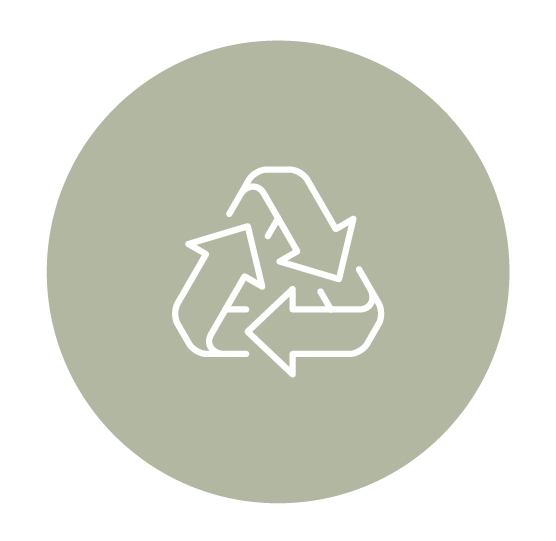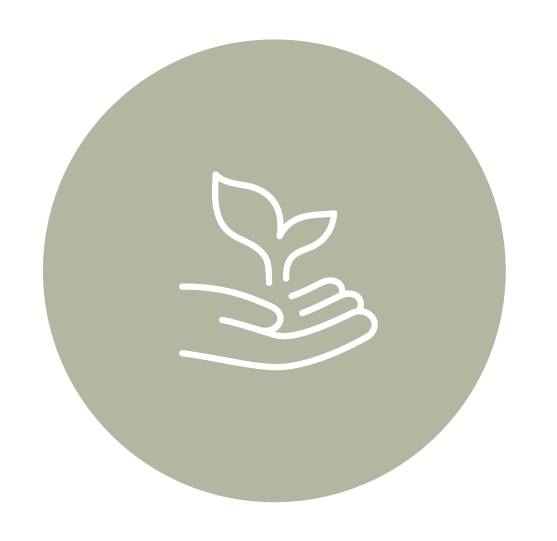SUSTAINABLE MATERIALS
Approximately 70% of our total emissions stem from materials that are used in our products. We therefore work hard to increase the share of recycled and more sustainable materials, without tampering with the quality of the products.
KPIs
80%
recycled materials by 2025
100%
more sustainable cotton by 2025
100%
Recycled packaging by 2025

Recycled Materials
Our goal is that 80% of materials used in our products should be recycled by 2025. Since we launched our first collection made of recycled nylon in January 2021, we have acelerated our efforts and shifted a large share of our existing and new collections to recycled materials.
As much as 60% of new products launched during 2022 are made in partially recycled polyester or polyamide. These materials are often made from plastic waste from e.g., PET bottles or old fishing nets that are melted down and spun into new fibers.
We also aim to have 100% of our seamless products made of recycled materials and have already reached appr. 86%.

More Sustainable Cotton
We are working on replacing all conventional cotton to more sustainable cotton whose cultivation has a lower environmental impact and better working conditions. We have therefore set as goal to only use recycled, organic or BCI cotton by 2025.
BCI (Better Cotton Initiative) is a global non-profit organization that train cotton farmers in sustainable farming practices and ensures that cotton is cultivated with less water consumption and pesticides.
Organic cotton is cultivated without pesticides nor artificial fertilizers which leaves the soil, air, and water free from pollution.

Other Sustainable Materials
As a part of our sustainability work, we research the possibility to use alternative, more sustainable, materials. We explore bio-based fibers for example, which have a much lower environmental impact than petroleum-based fibers.
Fibers made of food waste are an interesting alternative in this category as they are made of the by-products of e.g., coffee or orange consumption. Since they are made of waste products, there is no additional need for raw material extraction to produce the textiles, which reduces their environmental impact considerably.

Sustainable Packaging and More
Being mindful in choices of materials doesn’t only concern textiles, we make sure all materials and details in all products are carefully chosen. We therefore work with established brands such as Coats, YKK, and SAB for our trims as they are certified against strict environmental standards.
Our polybags are also made of 100% recycled plastic, our hangtags of 100% recycled paper and have during 2022 shifted our e-commerce bags to FSC-certified paper to make sure they have the lowest possible environmental impact.